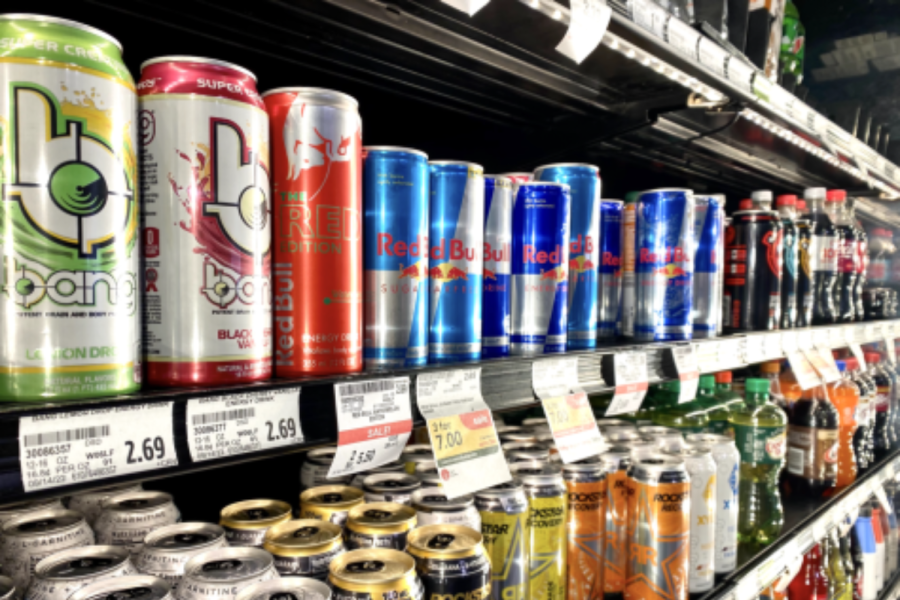Eighty-nine percent of Americans consume caffeine daily, boosting energy, focus, and physical performance. Yet caffeine has also been linked to increased anxiety, insomnia, and severe heart conditions like atrial fibrillation. When taken in high doses, caffeine can mimic other drugs and leave one with withdrawal symptoms when trying to quit.
“I started to get jittery and anxious during the school day, then when I got home, I would crash and couldn’t get any work done. I realized this cycle lined up with the days I would drink more coffee,” said Carlmont senior Ava Ildefonzo.
Ildefonzo realized she had to make changes once she noticed how caffeine affected her body.
“Even if it’s just a morning coffee or a Coca-Cola with my dinner, I can still feel the side effects,” Ildefonzo said.
In Ildefonzo’s case, cutting back on caffeine didn’t prove to be a problem. Similarly, personal trainer Max Rocans has also discovered that there is a healthy way to consume caffeine.
“There is a positive outcome to caffeine. I do have more energy, and I feel my performance is better because of that. I also feel better, process things faster, and I’m more alert… I drink caffeine twice a day, usually. Once in the morning before work and once in the afternoon before a workout,” Rocans said.
The perks of caffeine are part of why the substance didn’t always spark red flags. According to the recently published Journal of Caffeine and Adenosine Research, caffeine can cause the same neurochemical changes as other abused substances, such as cocaine and methamphetamines. Drugs like these activate reward centers in the brain and release dopamine, which creates a powerful, pleasant sensation, motivating one to repeat said actions.
For Rocans specifically, he can recognize his dependence and is still able to take caffeine breaks, “The negative is I am dependent on caffeine, and when I don’t get any, I can be grumpy or tired when I actually have to do physical work. If I get enough sleep, I can be okay and get by on water,” Rocans said.
According to Rocans, one of the biggest caffeinated mistakes is accidental dehydration.
“I do think I drink too much caffeine and not enough water sometimes… Caffeine can trick your body into thinking it’s hydrated; you won’t think about drinking water for long periods of time. I haven’t known anyone that has had an unhealthy relationship with caffeine, but I know plenty that don’t drink enough water, possibly because of the caffeine intake,” Rocans said.
In addition to the dehydration risk, there are other circumstances where caffeine should be avoided almost entirely.
Anyone pregnant or breastfeeding should limit caffeine intake as it will pass through their placenta or breast milk and onto their children. According to the American Pregnancy Organization, babies do not have the metabolism to process substances like caffeine. Even the smallest amount of caffeine can change a baby’s sleeping pattern or normal movement in the late stages of pregnancy.
The Diagnostic and Statistical Manual of Mental Disorders published by the American Psychiatric Association recognizes caffeine-induced anxiety disorder as a condition where caffeine interferes with daily functioning. A recent literature review found that caffeine can block adenosine receptors in the body, causing increases in dopamine, noradrenaline, and glutamate. With evidence from genetic studies proving that adenosine receptor genes play a role in the development of anxiety, it is possible that caffeine may make an individual more susceptible to an anxiety disorder.
“I could tell, every time after I got Starbucks, that it only made things worse. Sure I could focus, or I had energy, but the anxiety and restlessness weren’t worth it,” Ildefonzo said.
Often, bad habits are to fault, not the substance. For Carlmont senior Alexander Shetty, he felt his habits had pushed him to build a higher tolerance for caffeine.
“I would be drinking large amounts of caffeine every day and still feel tired,” Shetty said.
Rather than making caffeine the enemy, spreading information on how to build healthy habits proves more successful. With caffeine everywhere, it is hard for anyone to avoid it, especially considering the array of options now available.
“Caffeine is used in my business as a trainer as a stimulant. It helps you get into a workout by increasing your heart rate and blood flow. It can be taken in a diet pill, powder, or energy drink. It’s very popular for people to take before a workout,” Rocans said.
For Shetty, the problem was consuming too much of the substance. But others like Rocans have proven that there are healthy ways to incorporate caffeine into your life.
“I do think there is a healthy way to have caffeine in your life, but for me, it wasn’t something I could handle on a daily basis,” Ildefonzo said.












